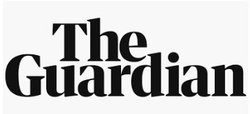
Simon Jenkins
March 9, 2020
The world appears to be on the brink of a sudden recession. The economic disruption caused by the coronavirus might put an end to what has been a heady decade on the world stock market since, after the 2008 global financial crisis, low interest rates and quantitative easing became the new normal. Today’s markets are registering massive falls of up to 10%, unprecedented since 2008. Billions of dollars and pounds are vanishing. It is Black Monday all over again.
The coronavirus has shown a world vulnerable to fear of illness. We have yet to experience its vulnerability to the economic consequences of that fear
Markets were heading for a fall after a reckless few years, but what starts as a classic “bear” plunge can drive a fall in global demand, stalled investment and unemployment. At this point, the world faces something new. Most recessions have confined themselves to one continent or two. But globalisation – particularly the rise of China – has seen trade, migration and tourism dissolve national, even continental, borders. As airlines and factories close down round the world, the oil price plummets to half its peak.
When whole economies quarantine themselves, everyone suffers. Modern capitalism depends on the maintenance of demand and the dynamics of production. It depends on confidence, that of millions of individual decisions, interacting with those of governments. But the decisions of governments are motivated by politics and ideology, viruses that no one can control.
During medieval plagues, people turned to priests for advice, comfort and prediction. Today we turn to scientists and doctors. Where their decisions have external consequences, as today, we turn to economists. The easiest answer to a pandemic-induced recession is to eliminate its proximate consequences. Do not overly suppress people’s economic activity. Sustain demand and production, even at some risk to those who may fall ill. People also die when economies go into recession. There is a balance of risks to be assessed.
The globalisation of this possible recession must make it peculiarly hard to counter. The tools of economic recovery available to governments are national not international. There is no global treasury to stimulate demand, pump cash into circulation, subsidise employment and maintain investment. The instinct of a nation’s government is now to self-isolate, build walls, impede congregation and stifle trade. The body politic, when threatened, retreats by instinct towards recession.
The coronavirus has shown a world vulnerable to fear of illness. We have yet to experience its vulnerability to the economic consequences of that fear. The World Health Organization may be on the alert. So, too, should be the World Bank, the IMF, the OECD, the G8 leaders and the world’s central bankers. Vast sums of money may be needed to help the poorest victim nations. Sick economies are just as morbid as sick people, perhaps more so. When the scientists are stood down, the economists must have their day.
- Simon Jenkins is a Guardian columnist


